Make Your Feature Competition Film "Stars" Is In Production - POV: Mars Roberge
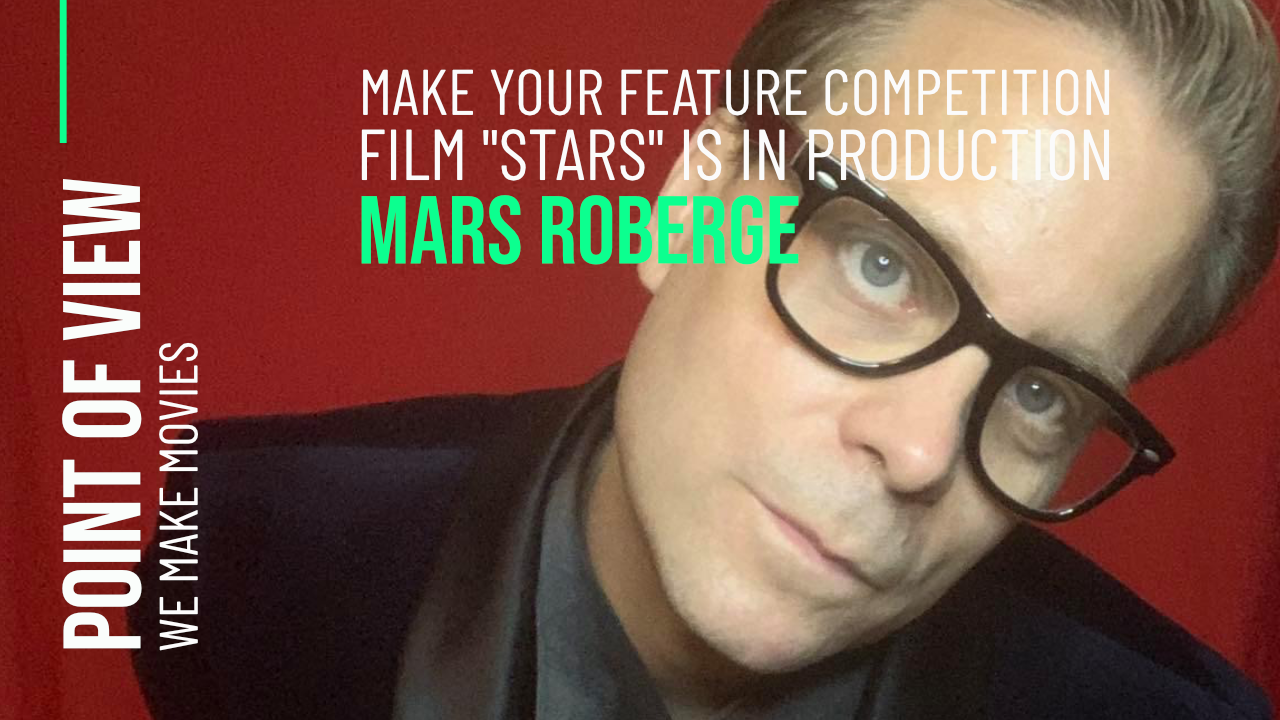
Stars, as are Mars' other films, is the prototype for indie, low-budget, DIY filmmaking. With a cast of six people, a handful of walk-ons, and NYC as the backdrop, minimal cast, crew, and locations contain the story. The film dives into the world of a group of homeless women in an NYC shelter who hide in fantasy to escape their existence, literally taking on the roles of the famous people they strive to become. When they are given the chance of a lifetime to obtain their goals, they realize that their happiness was from within the whole time and that a glimmer of hope is worth more than all the money in the world. Mars adapted the story from a play called "Stars" written by his queer, Israeli friend, Doron Braunshtein (taken from his collection of self-published plays called "Bread & Water"). The story resonated with Mars because both Doron and he came to America with nothing (literally homeless in the very beginning) but pulled themselves out of the gutter to make something out of their lives. The hardships of being homeless juxtaposed with the insanity of wanting to mimic celebrities (that most of social media thrives on) sets the perfect scene for the discovery of hope and the will to get up every day to work towards that dream. "I believe this story will uplift people," Mars declares, and it is this indomitable spirit that the film promises to deliver that is also the summation of who Mars is.
We gave you a bit of Mars' backstory when we announced the winners in November of 2021, but we thought we would catch up with him to share his perspective around filmmaking, the ins and outs of pre-production, and how he manages to do it all. Check out his first two video diaries and read all about Mars and Stars.
WMM: You've been a musician, a DJ, a stylist, and worn so many creative hats throughout your career. How is the process of filmmaking unique and/or similar to the other forms of artistry you have taken part in?
MR: Filmmaking actually combines everything I've learned. As a musician, I learned how to “improv” or “jam” with a band and when I’m on a film it’s a lot of “let’s just see what happens and if everyone can push each other artistically we’ll have something really great," and "just don’t freeze up but be open-minded to new ideas for different people.” It’s a team effort once the cameras start rolling. Also, being a musician prepped me to not have stage fright when in front of an audience, which is no different than walking in front of 25 strangers there to act or work as crew—yelling out my directions is the same thing as singing for the first time at a show.
Being a DJ taught me how to multi-task. I’m old-school from the days of vinyl (still spin vinyl) where I have to know what’s playing on both decks at all times, predict where it’s going and make the right choices on the spot. I often first A.D. my films (with some help during production) and I need to know what shot I’m going to, how much time I have for the shot I’m on, how to write new dialogue on the spot, how to see something interesting on location that I need in the movie RIGHT NOW, etc. Instead of freezing up, I’m a very good quick cutter. I can thank Jam Master Jay for that, more than my film idols. :)
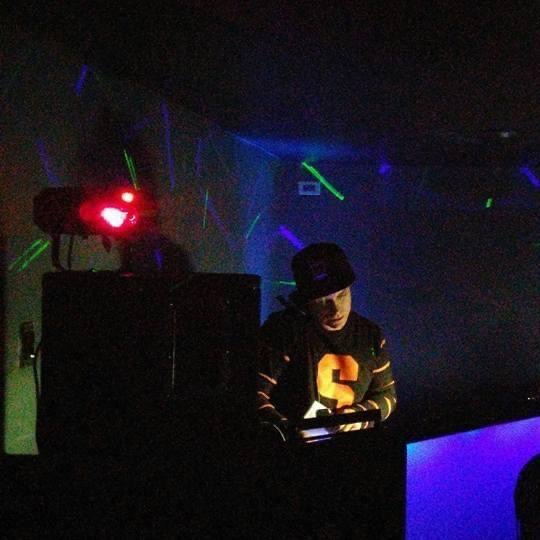
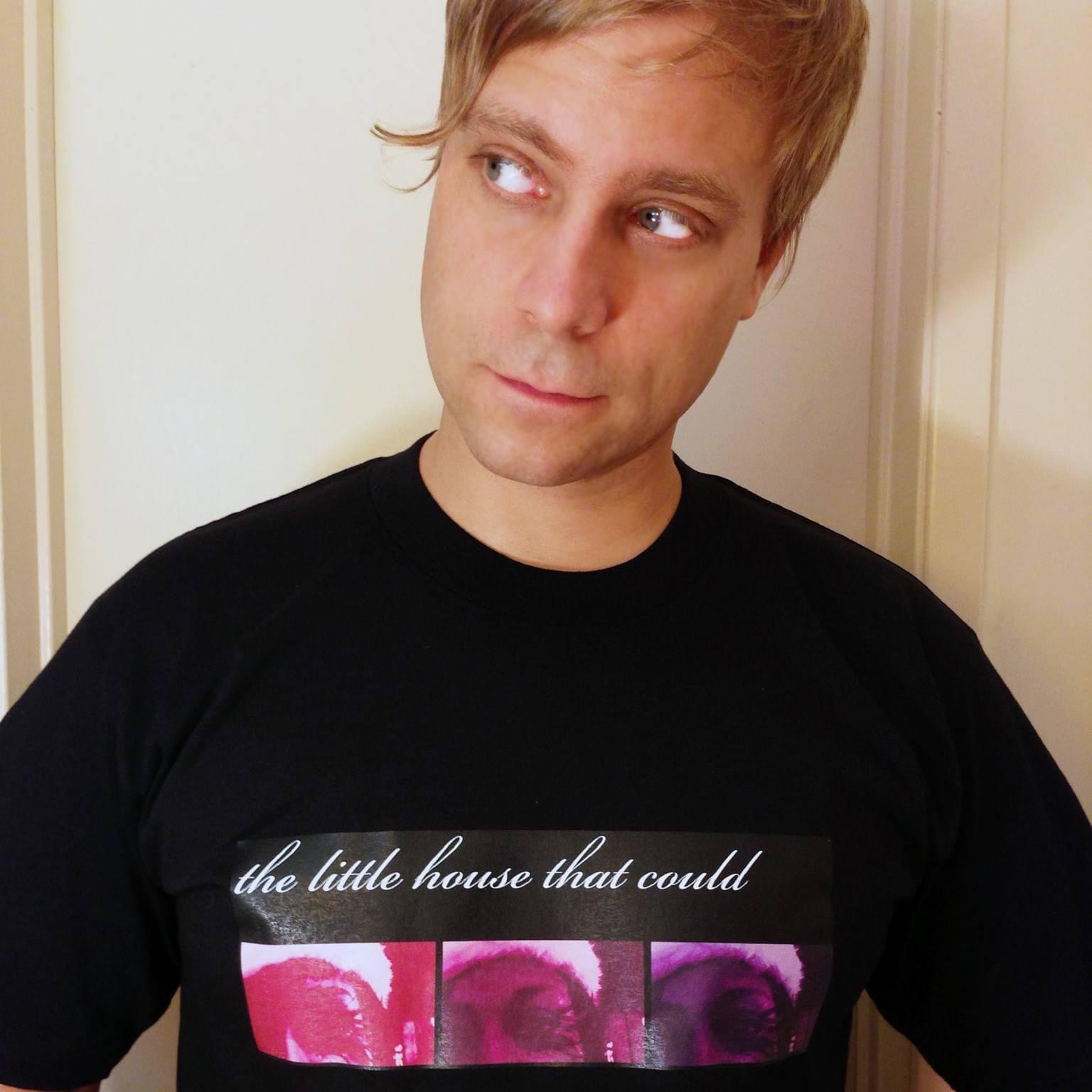
Being a stylist made me confident to take over ALL the wardrobe on my film when my original stylist could no longer do it. I styled everything and then a friend of mine, Steffanie L. Finn. took over, keeping everyone organized. I was easily able to walk a few blocks to Goodwill and pull about 12 looks in 1 hour that I needed for “Stars”. Also, from my years of working at Patricia Field, I met many of my stars for my films such as Rah Digga and Sophia Lamar in my current film. I met these people on a genuine level and not a Hollywood “hey can you help me make it” sorta thing that happens out here all the time. It sometimes happens before people even ask me what my name is. Lol. Most of my stars, I’ve known for at least a decade before I’ve approached them.
WMM: We know homelessness is near and dear to your heart, both from personal experience but also because you are a compassionate soul. What specifically compelled you to make this film and tell this story?
MS: When my friend Apollo Braun (real name Doron Braunshtein) approached me with his play about homelessness, knowing how far we have gone in life to going back to the early 2000s when we were both permanent “couch surfers” in NYC with giant dreams of making it in Entertainment. It took me back to gratitude of my current life from how I literally started “on the street.” At the same time, with the pandemic, so many people I know lost their jobs (and a lot more) that there’s always that impending doom of being homeless, which is very real for everyone. Even to this day, if I ever pass any 24 hour diners or coffee shops, I make mental notes in case I ever have to “sleep” there over a cheap coffee. It’s imbedded in me. And, at the very least, I always have that sort of knowledge to give people.
If that’s not enough, the first house I ever lived at in Toronto had a bunch of club kids (like me) where at least two of them decided to “not be part of the system” and have lived on the cold streets of Toronto for almost 30 years now (by choice). When I see these guys and they give me a friendly smile it makes me feel great to know they are still here. Seeing that, makes movies like this so endearing to me. Then, I have a filmmaker friend in L.A., Bumdog Torres, who makes great films and literally lives on the street (by choice). We’re all people and interesting people are interesting people, period. I want my film to help tie together humanity.
WMM: Since your film is adapted from a play, what was the process of writing the script like?
It was very interesting and eye-opening to say the least. See, I’m a sucker for dialogue-driven movies which goes back to growing up with The Breakfast Club. However, once I put the play into a screenplay format, the dialogues were way too long for even me. So a lot of the editing happened through rehearsing with the actors to see what sounded right. I often rehearsed without even looking at them just so I could hear the screenplay properly. Then I worked with my sister Patty Powers, as my story editor (and Sam of We Make Movies) to fill in the blanks and build more character development.
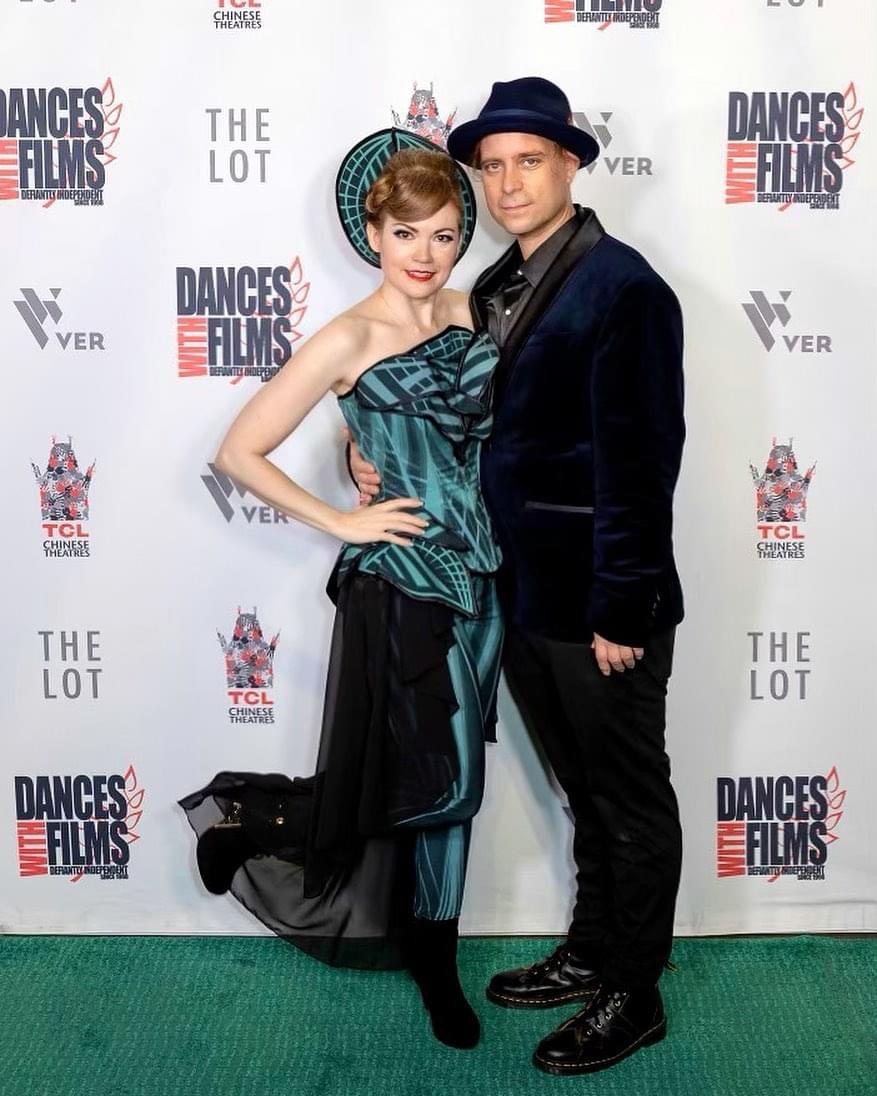
MS: I shouldn’t say this, but I had one panic attack that was so bad my wife almost called an ambulance thinking I was having a heart attack. There is nothing more stressful to me than pre-production, especially since I do almost ALL of it by myself (with the help of my producer Kenneth Shaw or wife Debra Haden). It’s not like people don’t want to help me or volunteer, it’s that I’m a control freak and I move at light speeds. Once I’m in pre-production mode, I become a different person. There is a reason why my idol is Napoleon. So I love it, I love taking over, and then I beat myself up that I isolated myself so much and have gotten to the point where nobody can read my mind. However, it’s my approach and I do get it done with usually a good outcome (knock on wood).
I have no interest in doing pre-production for other people because I worry it could hospitalize me (for real). It’s the worst part of making a film (especially a week before when people drop out with Covid, actors quit, etc.). Right now, I feel like Pacino at the end of Scarface. The walls are closing in but I’m not going down without a fight. The good thing about what I’m doing is that I am ready for sudden changes because there isn’t anything on the production I don’t have together. Having my shooting schedule, call sheets, DOOD Report (that’s right dude!), budget, itinerary, and master phone list together is an insane pain to make but once I have everything in the palm of my fingertips I’m ready to act quickly on anything. Definitely find back up people for back up people in today’s day and age.
WMM: NYC is a character in your film, but why is it imperative that you shoot this film in NYC? How was location scouting from afar (Los Angeles)?
MS: ALL my films are NYC based. It goes back to my favorite film After Hours by Martin Scorsese. There’s a mystery and magic to NYC that no other place in the world has. It has to do with history, for me. Also, when I’m running around the streets of NYC, it takes me back to the days when I had to hustle to survive. I moved there with $150, and today I am a dual citizen (Canada-USA) with now four feature films under my belt. If I can do it, anyone can. No excuses! It’s a hell of a lot of work though. I also like how NYC is more open to guerrilla filmmakers like me. Hell, graffiti started there for a reason.
WMM: What are you most looking forward to capturing in this film? What are the elements of the shoot itself that excite you the most?
MS: Hmmm… I’m just going to look for that one magic moment and run with it — Probably in an improvisational way. I can’t plan it but I’ll know it when I see it. I’m also going to be dabbing my feet with some action directions (air squibs, etc.) which is totally new to me. My past films dealt a lot with comedy but this is a very serious film. I’m also excited to work with a few new people I have never worked with before and to see all my old friends. I’m also really looking forward to seeing the magic that my wife, Debra Haden, pulls off. This is her most demanding role yet.
WMM: Is there a particular look and feel to this film, specific to the conditions you are portraying and landscape you are sharing? What type of camera did you use and why?
MS: Cold, desolate, black and white. I need to give the nature VS human vibe while at the same time making things as stylistic as films like Roma or The Tragedy of Macbeth. We are using a Red Komodo 6K camera mainly because my DP and 2nd Unit DP own them, but also because it’s one of the smallest lightweight cameras which is great when running around as much as us. So, I made a film in 8mm film, 16mm film, SD, HD, 4k, 8k, DCPs in 2k, so it would only make sense that I give 6k a try!

WMM: Is there any other gear that is specifically conducive or critical to this shoot?
Thanks to Aputure sponsoring us, we are using ALL handheld lights that fit into four small suitcases. Our gear is so small that we are flying to NYC WITH the gear. Crazy right? There’s only a couple things I’m picking up from SetShop in NYC based on a sponsorship where I won a prize for Best NYC with my last film Mister Sister at the 10th Winter Film Awards International Film Festival. We needed small gear because truck rentals went up so much that we needed to fit 90% of the gear into a Chevy Tahoe.
WMM: Your films are oftentimes loaded with celebrity cameos and generally stacked with many, many characters. How was casting for this film similar and/or different to how you have cast before?
MS: I don’t re-use my stars too much so I’ve pretty much come to the end of my celebrity pool for the certain budgets I’m in. That will change again when Hollywood finally gives me money and I call my other old customers + friends like Britney Spears, Paris Hilton, Juliette Lewis, Bebe Neuwirth, Jason Segel, etc. and say “hey, can you be in my film?” Yeah, I’m like the poorest guy who’s friends with famous people. Like, I needed a mansion for a scene in this film and Theodora said "my parents have one but I’ll get yelled at if I send you there."— her dad is Keith Richards. Lol. But you know I tried… Hell, after getting yelled at by Ringo Starr on a street corner for asking him to be in a film, I’m sorta ready to get yelled at by anyone for the sake of art!
WMM: What are your aspirations for this film and who are the types of people most likely to watch this movie?
MS: I binge watched Orange Is The New Black and I’m sure that same audience would love my new film Stars, but at the same time fans of art cinema that attend esteemed festivals like Cannes, Berlinale, and Rotterdam, should love this film. Plus, I’ve slowly created my own audience from the punk rock world (see my film Scumbag), the nightclub world (from all the nightclub celebs I’ve casted over the years), the LGBTQ world (from Mister Sister and The Little House That Could). I'm a rebellious filmmaker that doesn’t follow trends or people. If I didn’t think this wasn’t an original idea that hasn’t been done (or overdone), I wouldn’t be making this film. I like to turn heads.
WMM: Any last words?
MS: Just thanks for the opportunity to be me We Make Movies!

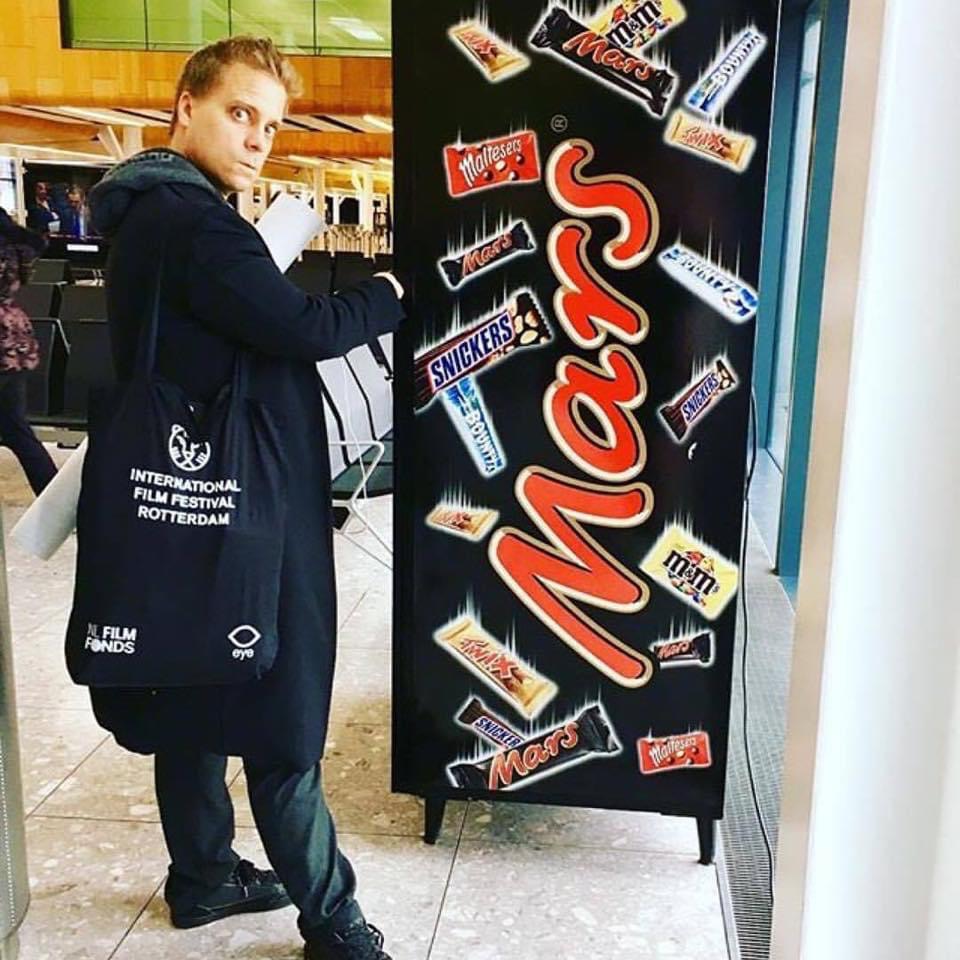
Written by Sapna Gandhi
Sapna Gandhi is an actor, singer-songwriter, and content creator. In addition to TV credits such as BOSCH, SHAMELESS and SCANDAL, she has appeared in numerous shorts, features, and series, including festival darlings IN ABSENTIA (Raindance) and THUMPER (Tribeca). Gandhi has produced several series and films under the umbrella of her production company Elegant Grotesque (most recently SCRAP, starring Anthony Rapp and Vivian Kerr, and Noel Gallagher’s High Flying Birds’ STRANDED ON THE EARTH, directed by Mike Bruce). She is also 1/2 of the musical duo, VATAVARAN, was born in England, raised all over the states, studied English and Women’s Studies, and trained at the American Conservatory Theatre in SF.

